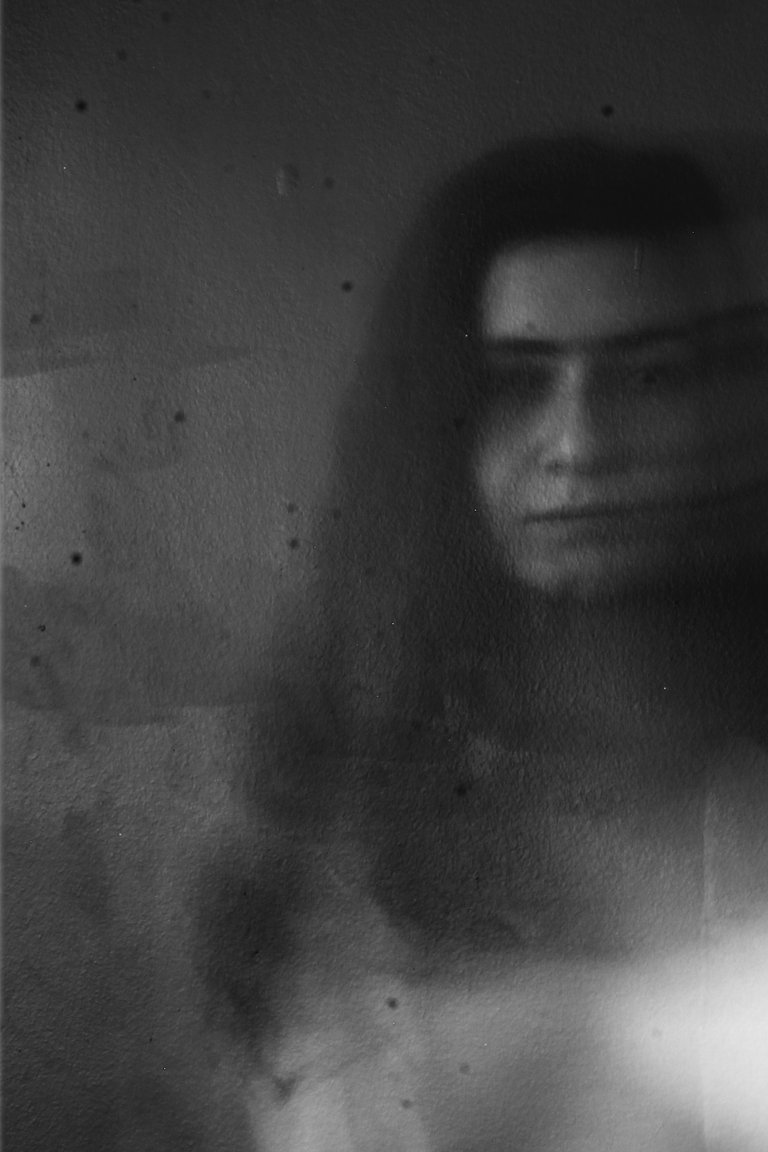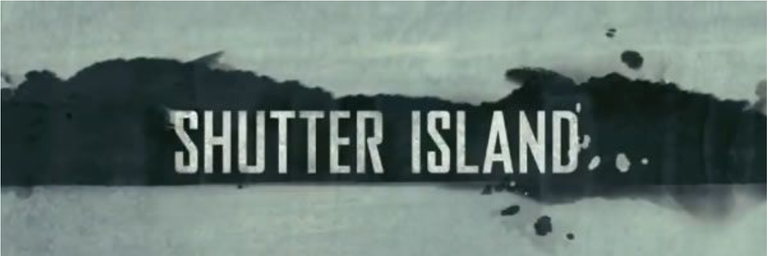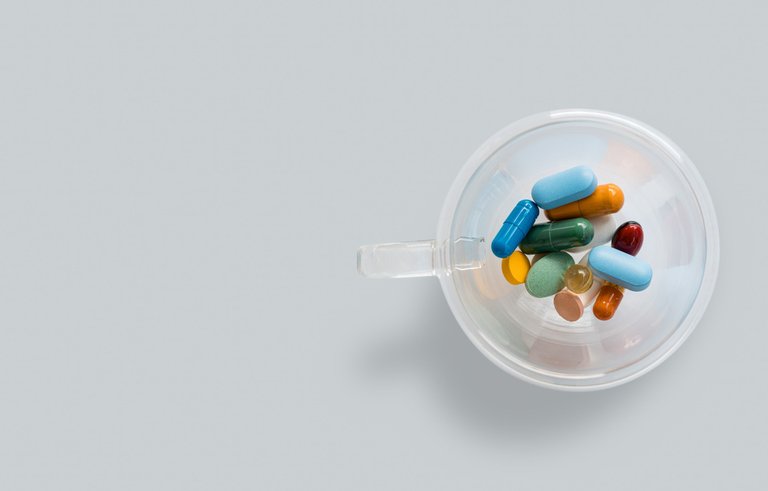Psychology Chronicles Series #33 : Delusional Disorder | An Overview Of Nonbizarre Delusions

Warning: This blog post is one big spoiler alert, so if you haven't seen "Shutter Island" but want to, please refrain from reading this post.
The movie takes place in a mental asylum located on Shutter Island. Leonardo DiCaprio(Edward “Teddy” Daniels) and his partner Mark Ruffalo(Chuck Aule) goes to conduct an investigation on the mysterious disappearance of a patient on the island. And then the story starts to get very complicated from there. At first we were hoping to uncover the whereabouts of that recently-disappeared patient.While watching I thought that in the next scenes I will be witnessing Teddy as a brave soul searching for evidence that will expose the mysteries behind Shutter Island .Only during the final scene did I finally realized that the narrative is about appalling psychosis and baffling role play.
All the fragments of the story unravelled. Teddy is not a real person but a delusion created by patient Andrew Laeddis. The movie's ending reveals that DiCaprio’s character is a patient himself, confined to the Shutter Island facility after murdering his wife (Michelle Williams) because she went insane and killed all their children by drowning them in the lake. Two doctors of the asylum, Dr. Cawley (Ben Kingsley) and Chuck (Mark Ruffalo), initiated a roleplaying scenario, to help Andrew break free from his delusions. The bait-and-switch plot twist made the viewer to re-assess the entire movie up until that point, making “Shutter Island” a movie worth watching on the second and third watches.
Honestly, I found the film to be incomprehensible at first, then progressed to somewhat entertaining discussion of lines — the type of subtle, easily blurred lines that exist between reality and insanity. Although mental health issues like delusions and 20th-century inpatient treatment are aggressively evaluated within the plot, many of its exclamation points are in fact questions that still warrants further debate.

Does the protagonist suffer from an actual psychological disorder?
Teddy displays features of Delusional Disorder Mixed Type because of the presence of both Grandiose and Persecutory Delusional Disorder. According to the American Psychiatric Association’s Diagnostic and Statistical Manual of Mental Disorders (DSM V), this mixed type is characterized by feelings of incredible personal importance and feelings of being watched. Teddy experiences both; believing he is on to discover the secrets of the island and simultaneously is being conspired against by the doctors at the asylum. For people with Delusional Disorder, full periods of remission may be followed by subsequent relapses, just like in Teddy's case.
Delusional Disorder: A Clinical Definition

According to the Diagnostic and Statistical Manual of Mental Disorders, Fifth Edition, the primary symptom of delusional disorder is the presence of one or more delusions that continue for at least a month. These delusions can affect both personal and professional life, as others surrounding the individual concerned begin to see these individual as illogical and unreasonable.
This mental illness is previously called as Paranoid disorder. It is a form of psychotic disorder that makes people unaware of what real and whats not. Delusions are fixed, rational beliefs that contradict with reality. Despite of contrary evidence being laid out , an individual in a delusional state can't seem to let go of these convictions. But it doesn’t mean that the whole scenario is completely unrealistic. This mental illness pertains to delusions that aren’t bizarre, having to do with situations that could happen in reality. These delusions usually involve unsound perceptions or experiences. But in real life, the situations are either not true or highly exaggerated by the individual.
Delusional disorder is differentiated from schizophrenia by the occurence of delusions without any other symptoms of psychosis like hallucinations,disorganized speech or behavior and negative symptoms. The delusions may either be:
Nonbizarre: These situations could actually happen in real life; such as being followed, poisoned, infected, loved at a distance, or deceived by a lover.
Bizarre: They involve unthinkable situations such as believing that someone removed some of their internal organs without leaving a scar to the body.
Compared to Schizophrenia delusional disorder is relatively rare. Delusional disorder often occurs in middle or late adult life and is more common in women than in men. Psychosocial activities is not as impaired as it is in schizophrenia, and impairments usually happens because of the delusional beliefs of the individual.
Diagnostic Criteria for Delusional Disorder
While the essential feature of Delusional disorder is simply the presence of one or more delusions that arise for at least 1 month, the following are all used to make an appropriate diagnosis of delusional disorder:
- The person has one or more delusions that persist for at least a month or more.
- Criterion A for schizophrenia is not and never has been met.
- Aside from the delusion(s) direct effects, psychosocial functioning is not obviously impaired, and behaviour of the individual is not noticeably strange.
- Any manic or major depressive episodes have been short, compared to the length of the delusional period.
- The disturbance cannot be associated to the physiological effects of a substance, another medical condition, or another mental illness.
The severity of the delusions should be taken into consideration and it should also be specified if delusions involve bizarre episodes, or are clearly unrealistic. Additionally, there are a few subtypes with specific delusional themes that should be recognized when diagnosing the disorder:
Erotomanic: Patients believe that another person is in love with them.
Grandiose: Patients believe they have a great talent or have made an important discovery just like what Andrew thought in the movie.
Jealous: Patients believe that their lover is cheating on them. This belief is based on mistaken inferences supported by unconfirmed evidence. These may result to conflict with the law related to this behavior.
Persecutory: Individuals with this illness, believe that they are being plotted against, spied on, maligned, or harassed. Same with what Andrew believed in the film, that everyone in the aligned is trying to harm him.
Somatic: The delusion relates to a bodily function example the belief of having a physical illness,deformity,odor or even parasite.
Patients' behavior is not obviously bizarre or odd, and apart from the possible effects of their delusions, patients' functioning is not remarkably impaired.
Clinical Assessment
Diagnosis of Delusional disorder depends relatively on doing a clinical assessment to the patient like evaluation of the thorough history of the individual and eliminating other specific conditions associated with delusions like substance abuse, Alzheimer disease and other schizophrenia spectrum disorders.
Evaluation of potential imminent danger, especially the gravity to which patients are willing to act on their delusion, is very essential to the diagnosis of the illness.

Treatment of Delusional Disorder
Delusional disorder same with other mental illness is typically a chronic (ongoing) condition, but when properly treated, individuals with this disorder can find relief from their symptoms. Patients do have a few options:
Psychosocial treatments. Psychosocial treatments can help with the behavioral and psychological problems connected with delusional disorder:
- Psychotherapy: A type of therapy that is considered as the most effective treatment for patients with delusional disorder. The therapist will avoid directly changing the delusional beliefs and instead focus on realistic problems and goals the individual has. Then, the therapist will work on having an effective physician-patient relationship and to manage complications.
- Cognitive-behavioral therapy (CBT) helps the patient identify and re-model thought patterns and behaviors that lead to dangerous feelings and perceptions.
- Family therapy can help the loved ones of the patient suffering from the illness by enabling them to contribute to a better outcome for the individual.
Medications: Anti-psychotic medication is the most common form used to treat delusional disorder:
- Atypical antipsychotic drugs — recognized to be more effective in treating the symptoms of the illness. These type of medications work by obstructing dopamine and serotonin receptors in the brain. Serotonin is another neurotransmitter believed to be involved in delusional disorder.
- Other medications that can be used to treat delusional disorder include tranquilizers and antidepressants. Tranquilizers are used only if the person has a very high level of anxiety and/or having sleeping problems. Antidepressants on the other hand is used to treat depression, which often occurs in individuals with delusional disorder.
There’s no known way to shut off delusional disorder. But early diagnosis and treatment can help lessen the disruption of this illness to an individuals life. Many sufferers of this disorder don’t seek help. Oftentimes they are too embarrassed or afraid to seek treatment. Sadly, without treatment, delusional disorder can be a lifelong illness.
We have reached the end of this article, I hope you've learned a lot from one of my blogs in my psychology series. I'm going to leave this memorable quote with you from the film and I'm going to give you the chance to interpret it on your own. That's all friends till my next article:
"Which would be worse: to live as a monster or to die as a good man?"

References:
1. Delusional Disorder
2. Shutter Island: Separating Fact from Fiction
3. ‘Shutter Island’ Ending, Explained
4. Months Before ‘Inception,’ ‘Shutter Island’ Delivered an Ambiguous Ending That Haunts 10 Years Later
5. Delusional Disorder: Causes, Symptoms, Treatment DSM-5 297.1 (F22)
6. Delusions and Delusional Disorder
Further Readings:
Substance Abuse and Mental Health Services Administration. Impact of the DSM-IV to DSM-5 Changes on the National Survey on Drug Use and Health [Internet]. Rockville (MD): Substance Abuse and Mental Health Services Administration (US); 2016 Jun. Table 3.20, DSM-IV to DSM-5 Psychotic Disorders. Available from: https://www.ncbi.nlm.nih.gov/books/NBK519704/table/ch3.t20/
American Psychiatric Association. Diagnostic and Statistical Manual of Mental Disorders, Fifth Edition (DSM-5), American Psychiatric Association, 2013.
Manschreck TC. Delusional disorder and shared psychotic disorder. In: Comprehensive Textbook of Psychiatry, 7th ed, Kaplan HI, Sadock BJ (Eds), Williams and Wilkins, Baltimore, MD 2000. Vol 1, p.1243.
Images:

I like how you open the blog sharing a movie and lining delusional disorder. It was a good read. !discovery 25
Thank you for appreciating my post. I think the best way to explain the gravity of this disorder is to cite an example case study.
This post was shared and voted inside the discord by the curators team of discovery-it
Join our community! hive-193212
Discovery-it is also a Witness, vote for us here
Delegate to us for passive income. Check our 80% fee-back Program
Thank you @discovery-it
Your content has been voted as a part of Encouragement program. Keep up the good work!
Use Ecency daily to boost your growth on platform!
Support Ecency
Vote for new Proposal
Delegate HP and earn more
Thanks @ecency
This is quite educating and entertaining to read. I almost could not make a distinction between delusion and schizophrenia before now.
Yes because in delusional disorder beliefs are non-bizarre and are not accompanied by any other signs and symptoms of schizophrenia like hallucinations and disorganised speech or behaviour. Thank you so much for dropping by @gentleshaid and for appreciating my post.
Thanks for your contribution to the STEMsocial community. Feel free to join us on discord to get to know the rest of us!
Please consider delegating to the @stemsocial account (80% of the curation rewards are returned).
Please consider including @stemsocial as a beneficiary to get a stronger support.
Congratulations @sakura1012! You received a personal badge!
You can view your badges on your board and compare yourself to others in the Ranking
Support the HiveBuzz project. Vote for our proposal!
This is definitely the kind of movies I would enjoy watching. Unfortunately, whilst I have the DVD at home (yes, DVDs still exist ;) ), I have never taken the time to watch it (I actually don't watch anything those days).
Thanks also for the lesson concerning the different between delusional disorder and schizophrenia. I would not have been able to explain how different they could be before reading this post.
Yes movies like these are very interesting to watch.
By the way thanks for dropping by. I havent posted anything in the community yet because this is the first time I got the chance to charge my phone. Our place doesnt have electricity and signal because of the tyhpoon that strucked our place last dec 16.
Looking forward to post another psychology post in the community if electricty will come back. Hopefully soon :(
Good luck with rebuilding your place. We have seen pictures from the typhoon, and it looks really very bad from here. Don't worry, we will be waiting for you, so please take your time to deal with the most urgent things.
Thank you we are positive we can get through this.
Dear @sakura1012,
Do you mind supporting the HiveBuzz proposal for 2022 so our team can continue its work next year?
You can do it on Peakd, ecency, Hive.blog or using HiveSigner.
https://peakd.com/me/proposals/199
We wish you a Merry Christmas and a Happy New Year!